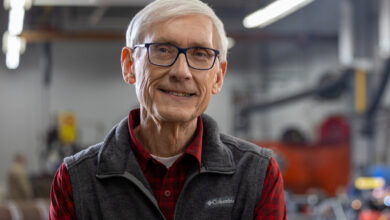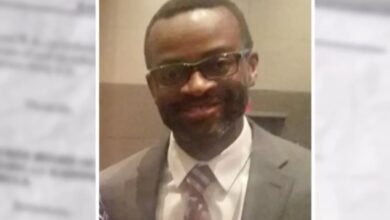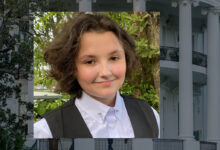Minn. Gay Marriage Fight Cuts Deep for Catholics
by Patrick Condon, Associated Press
ST. PAUL, Minn. (AP)—Under the soaring ceiling of the Cathedral of St. Paul, about four dozen Catholics sitting in a cluster prayed a rosary in silence. The devotional litany is normally recited aloud, but the worshippers—branded dissidents for embracing gay rights by church leaders who support a constitutional ban on gay marriage—had been told to be quiet.
“He said we were praying against the teaching of the church, and as director of the parish it was his authority to determine when public prayer was OK and when it was not,” Barbara Frey, a lifelong Catholic, said in describing an April confrontation with the Cathedral’s rector. Since that encounter six months ago, the group has gathered at the cavernous church each Tuesday night for a silent rosary.
As Minnesota’s gay marriage vote draws near, the divide between Minnesota’s Catholic hierarchy and some churchgoers gets starker. Minnesota’s Roman Catholic Church has donated heavily in support of the proposed ban and called on members to support it, leaving gay-friendly Catholics in an increasingly tough position.
While some pray silently, many are noisily opposing their leaders. At fundraisers and news conferences, through yard signs and bumper stickers, and even in confrontations on church property, these believers have pushed back even as bishops, priests and their allies suggest salvation is at stake.
“Is it sinful to vote no? I think it is,” said the Rev. Mike Rudolph, who leads two St. Paul-area parishes.
Four states are voting on the definition of marriage this fall, and Catholic leaders have said Pope Benedict XVI is personally tuned in to the outcome here and in Maine, Maryland and Washington. Under Benedict’s leadership, the Catholic Church has toughened its stance against gay marriage even as an increasing number of U.S. states and western countries legalize it.
Minnesota bishops, led by St. Paul-Minneapolis Archbishop John Nienstedt, have taken up his charge. Minnesota’s Roman Catholic Church is one of the leading funders of the push to constitutionally prohibit same-sex marriage, with the six dioceses together contributing more than $1 million to the principal campaign group pushing the ban. Even more money has come in from other U.S. Catholic dioceses, individual churches and Knights of Columbus chapters.
The Catholic Church has supported anti-gay marriage campaigns in the other three states, but not to the same level. In March, Portland Archbishop Richard Malone said churches would not contribute formally to the campaign; Washington state’s three Catholic dioceses also have not contributed directly.
Minnesota Catholics against the amendment point out that the church’s spending comes at a time when it has recently shuttered churches and schools. Nienstedt and his fellow bishops even wrote directly to Minnesota Catholics soliciting donations to the campaign to pass the amendment.
“No amount is too small,” their letter said.
“Here I thought we were supposed to feed the hungry and clothe the naked,” said Terrence Glarner, a retired venture capitalist and lifelong St. Paul Catholic who said he’s stopped donating money to church causes if he thinks it would go into funds accessible by the archdiocese. Glarner, a former seminary student, said he’s known many gay priests, church employees and churchgoers over the decades who are hurt by the decisions of the hierarchy.
Minnesota, probably more known for its taciturn Lutherans, has as many Catholics. Nowhere is that heritage more apparent than St. Paul, a city of Irish and Italian immigrants that was given its name by a Catholic priest and which has seen strong church influence through much of its history. Like many large cities, St. Paul today has a core of socially liberal voter but also retains a Catholic identity through its network of churches, dozens of Catholic schools and two universities, and thousands of residents whose Catholic roots go back generations.
“This has been hard, because it’s been hurtful to reconcile feeling excluded from the church that has been such a part of my community and my life,” said Jenny Haigh, a lesbian who grew up Catholic in St. Paul. Haigh and her partner stopped going to the church about six months ago, but their son still attends Catholic school.
Haigh is a 1991 graduate of Cretin-Derham Hall, a Catholic high school whose storied athletic program produced such pro athletes as Joe Mauer and Paul Molitor. Recently, she helped organize an event at a local Irish pub where Cretin alumni networked and fundraised against the gay marriage ban—a grassroots approach mimicked by Catholic churchgoers and graduates in St. Paul and statewide.
Some St. Paul Catholics have been more confrontational. Amy Michel, a lifelong churchgoer, said she argued with the parish priest at Church of the Holy Childhood, near her family’s home. She was angered by signs on church property that urged people to “vote yes” on the gay marriage ban.
“He cut me off and said ‘shame on you,’” Michel said. “Then he said, ‘That’s sinful.’ Then the conversation got worse. He told me my conscience has not been well formed.”
That pastor did not return a call seeking comment. Minnesota’s six bishops all declined or did not respond to requests for interviews with The Associated Press.
“We’re a family, we’ve got a dispute, but let’s keep it in the family and let’s work it out rather than airing it in public,” said Jason Adkins, a lobbyist for the six bishops and spokesman for their campaign effort. “That undermines the credibility of the church and the one main job we have as its disciples.”
Adkins said church leaders believe the number of active churchgoers involved in the dissent is overstated. A Pew Research Center poll conducted a year ago found 52 percent of Catholics nationwide favored marriage rights for gays, slightly higher than the general population.
As members of a St. Paul Catholic Church, Haigh and her partner, Aileen Guiney, recently got a letter in the mail from Nienstedt asking them to vote for the marriage amendment. It was addressed to “Ms. and Ms. Aileen Guiney.”
Haigh said the church has always been like an extended family. She said the message from the top of the hierarchy belies the values learned in her own Catholic education.
“There are a lot of Catholic people that support same-sex marriage not in spite of their faith, but because of it,” she said.











Comments